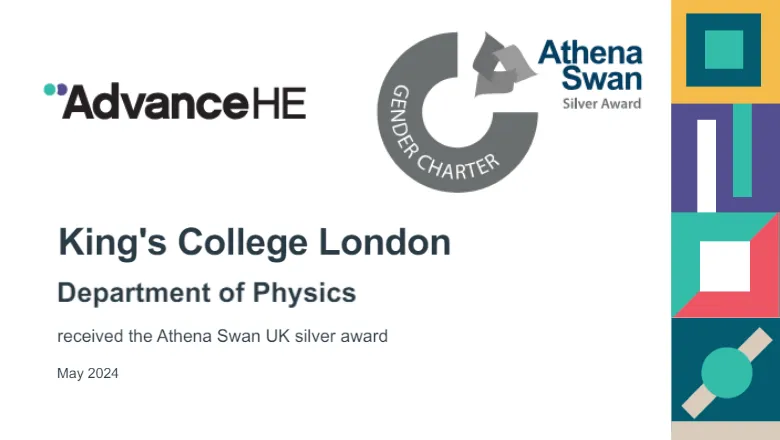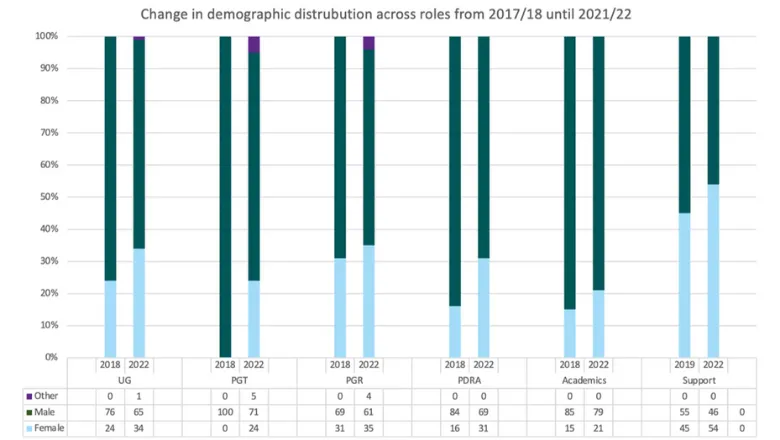This award is recognition of all the effort we are investing in EDI activities and monitoring to make our department an inclusive and supportive environment for all."
Professor Jeanne Wilson, Department EDI lead
05 June 2024
Department of Physics receives second Athena Swan Silver award
The Department of Physics has been awarded the Athena Swan Silver award for the second time.

The Department of Physics has been awarded the Athena Swan Silver award for the second time, in recognition of the department’s continued work to tackle gender inequality in higher education.
Athena Swan is a UK charter granted to recognise commitment and advancement of gender equality in higher education and research.
Having previously received the award in 2019, the current award remains valid for five years. Institutions must renew their silver status at least once before they can be considered for an Athena Swan Gold award, so having won twice the team can now focus their sights on a Gold Award.
Developing the submission involved a core team of academics and contributions from many other members of the Department and Faculty EDI team.

Professor Jeanne Wilson, Department EDI lead, said: “This award is recognition of all the effort we are investing in EDI activities and monitoring to make our department an inclusive and supportive environment for all.
“It should be seen as evidence of our commitment to diversity and promoting under-represented groups and fostering academic aspirations for women and minorities in science.”
Head of the Department of Physics, Professor Ruth Gregory said: “There is still plenty of work to be done and our future action plan has been developed to address some of the challenges we still face. We hope this award can be seen by prospective students and staff as another reason why King’s is a great place to study and research physics.
“Now we’ve received the silver award twice we will be working towards achieving an Athena Swan Gold Award in 2029,” Professor Jeanne Wilson said.
In terms of progress made, the number of female undergraduates in Physics has increased over the last four years, and student ratios are now above the national and London benchmark provided by the Institute of Physics for undergraduate and postgraduate. The female/male ratio for undergraduate students has risen from 27 percent in 2018/19 to 34 per cent in 2021/22.
In terms of academic recruitment, the Department now tracks each staff post, reviews all shortlists, and includes research, teaching and EDI discussion components in lectureship appointments. These actions have been successful at increasing the male/female ratio of academic staff – from 17 per cent in 2018/19 to 26 per cent in 2021/22.
The post-doctoral ratio has seen even more improvement – from 18 per cent to 31 per cent of researchers female. This is significantly higher than the national average for Physics, which sits at 22.6 percent according to Advance HE's Equality in Higher Education: Statistical Report 2020.
The Department has also developed a code of conduct and implemented documentation of EDI responsibilities for all roles and improved committee structures and terms of reference.


